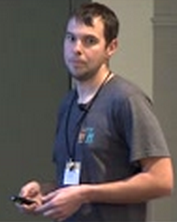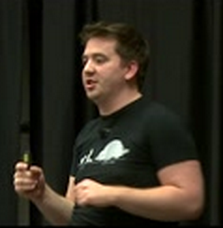Programmatic access to the call stack in C++--Eli Bendersky
 The call stack can be accessed without debugger too:
The call stack can be accessed without debugger too:
Programmatic access to the call stack in C++
by Eli Bendersky
From the article:
Sometimes when working on a large project, I find it useful to figure out all the places from which some function or method is called. Moreover, more often than not I don't just want the immediate caller, but the whole call stack. This is most useful in two scenarios - when debugging and when trying to figure out how some code works...

 Have you registered for CppCon 2015 in September? Don’t delay –
Have you registered for CppCon 2015 in September? Don’t delay –  Have you registered for CppCon 2015 in September? Don’t delay –
Have you registered for CppCon 2015 in September? Don’t delay –  Have you registered for CppCon 2015 in September? Don’t delay –
Have you registered for CppCon 2015 in September? Don’t delay – 